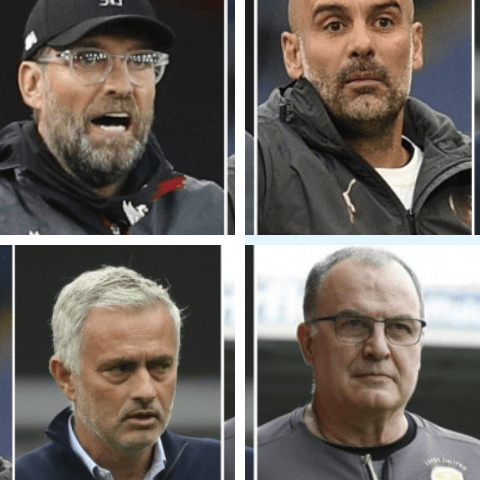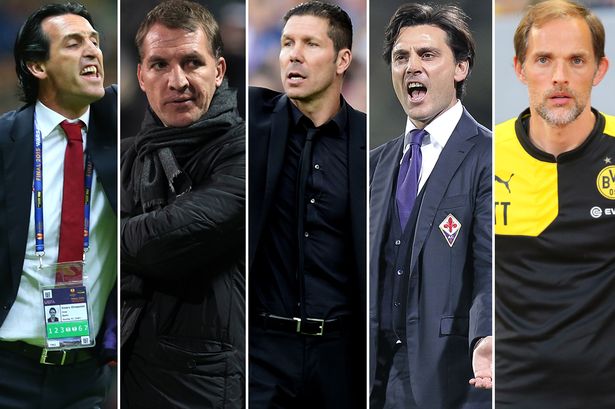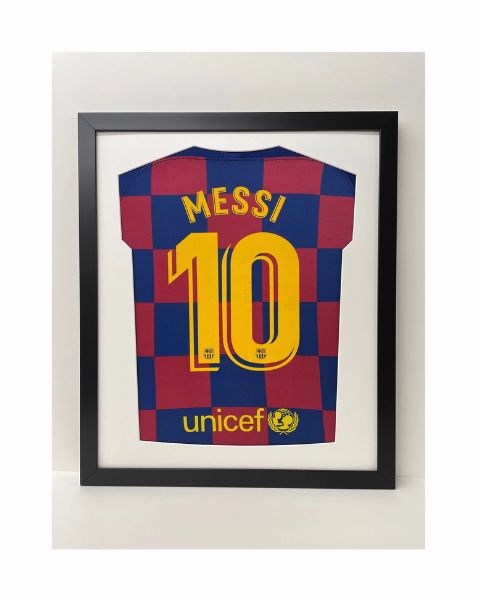
The 15 best goalkeepers in the world
May 20, 2022
Why and how to create a good SEO strategy for your website?
May 25, 2022

Choosing the ten best football managers in history is not an easy thing. Football is a sport in which the 22 players who jump onto the field of play to play the match have a special role. Although they are, more than likely, the main responsible for a club’s sporting career, when a losing streak occurs, the focus is usually directed to another area of the field.
We are talking about the position of coach, the one that usually takes a backseat when victories are enjoyed and that suffers the vast majority of criticism when defeats come. It can be said, therefore, that the coaching profession is quite thankless, especially when you have enjoyed the honey of the protagonism of an active footballer.
However, there are many best football managers with enough capacity to generate prominence and noise around their figure, either because of their unique style and personality or because they have created what we know as author teams, that is, formations and styles of play. uniquely developed by a trainer, or simply for the cost of hiring him.
Top 10 best football managers
We can find different examples of best football managers who are protagonists: Jose Mourinho, whose personality has always allowed him to enjoy a lot of prominences (especially in press conferences), or Pep Guardiola, who has offered a very particular style of play in the big 3 clubs in which he has been a coach: Fútbol Club Barcelona, Bayern Munich and his current team, Manchester City.
Despite everything, those of us who are loyal to football knows the importance of a coach in the performance of a team, especially in cases where they have allowed the ability of one or several players to improve, or where they have been able to implement a style unique and different game. So, who have been the best football managers in the history of football?
10. Zinedine Zidane
One of the best players in the history of France and football is also one of the best football managers. It is true that his Real Madrid will not go down in history for a precious or unique style of play, but the achievement of 3 Champions Leagues in a row (plus another as Carlo Ancellotti’s second coach) is a milestone with enough weight to place Zinedine in this ‘top 10’.
We are facing a feat that is difficult to repeat, especially considering the football we are currently in. It is true that at that time he had a real squad , with players like Cristiano Ronaldo, Benzema, Modric, Toni Kroos, Sergio Ramos or Keylor Navas, but it cannot be denied that the Frenchman took a practically sunken squad and revived it to get three European gold medals followed.
9. Johan Cruyff
We find ourselves with a case very similar to that of Zidane: Johan Cruyff, who will probably be in the ‘top 5′ of the best players in history for many people, is also one of the best coaches for us. As a coach, Johan made Barcelona champion of Europe for the first time in its history, and in addition to having achieved a good number of league titles and 2 European Cup Winners’ Cups, he was especially characterized by having marked a unique style of play, very offensive, with the ball as the main protagonist and with great pressure on the rival.
So much is the depth of his time at Camp Barça , which is the style of play with which the Barcelona club is already characterized. Therefore, it can be said that Cruyff has set a great trend in the world of football, and probably the most precious. The father of the so-called ‘Dream Team’ deserves a place in this ranking.
8. Jose Mourinho
Although he is a character who has been able to gain a lot of dislike within the football fields, his value as a coach is hardly questionable, despite the fact that in recent years he already seems to be on a significant downhill.
Porto, Chelsea, Inter Milan, Real Madrid … as we say, ignoring the final stretch of his career, he has won leagues at all the clubs he has been to, as well as two Champions Leagues with Porto and Inter, being his only ‘stain’ not having done it with Real Madrid. His great merit lies in having built champion teams from scratch, as is the case with the Portuguese team and Chelsea.
Although their teams are usually quite defensive, and they shield themselves a lot behind, this is also football and deserves to be valued.
Also Read: Top 10 Oldest Football Clubs in the World
7. Alex Ferguson
Sir Alex Fergurson, with one of his many Premier League wins.
An absolute legend in one of the most important teams in the history of football, Manchester United, being the second coach with the most appearances in the English club. He began his career in 1986, ending it in 2013, with a total of more than 1,500 games directed, which have meant 15 leagues, 5 Cups and 2 Champions Leagues.
He built an absolutely successful team from scratch, which has become the most important in the United Kingdom, forming players like Ryan Giggs, David Beckham or a certain Cristiano Ronaldo. It is, in short, Sir Alex’s overwhelming dominance for many years with United. Finally, it is also worth noting that he has done it adapting to the templates that he had, with different styles.
6. Carlo Ancellotti
Carlo Ancelotti gives instructions during a match with Napoli.
A coach who has become great with his Champions League won in Italy and at Real Madrid, whom he returned to European glory after 12 years, with the long-awaited ‘tenth’. He began his career with an incredible second place with humble Parma in 96/97, which was a great springboard for many of his players.
Although he did not have much luck at Juventus, he would arrive at AC Milan, where he would play in 3 Champions League finals, winning 2. After passing through Chelsea and PSG, where he won the Premier League and the French league, he arrived at Real Madrid, where, as we say, would go down in history, winning the Champions League after more than a decade in the desert.
5. Helenio Herrera
Helenio Herrera, warmed up by his players, during his time as Barça coach.
A revolutionary coach who has gone down in football history for having thought and carried out very different aspects, marking a unique style. In total, there are 36 years of coaching career in which he won all kinds of titles: European Cups, local leagues… in Spain, France or Italy.
He is a reference coach in the 60s, who put together the great Inter Milan of the time, taking Luis Suárez to the Italian club. He highlighted his group concept, which revolutionized Italian football: rallies, and group training… which led the Italian club to football modernity.
4. Raymond Goethals
Raymond Goethals, with his iconic cigarette.
Called ‘The Scientist’, this Belgian coach was ahead of his time. Although he is not in the popular memory of other great times, he is a figure who deserves to occupy the fourth position in this ranking. The Belgian is the inventor of the so-called ‘forward defence’, which was a huge influence on the football we know today.
He was also noted for his preparation of set pieces and pressing, which have also exerted a strong influence on modern football. An innovative, driving force, that he did many different things with inferior teams, winning, for example, a European Super Cup against the almighty Bayern Munich in the 70s with Anderlecht. With Olympique de Marseille he would be able to win the European Cup, making the French team the first to win it in his country.
3. Arrigo Sacchi
Arrigo Sacchi, during his time as coach of AC Milan.
Italian coach whose arrival on the AC Milan bench was a real revolution in Italian football, with a great impact on all of world football. He radically changed the football perspective of the transalpine country, with a much more offensive style of play, with the ball as the main protagonist.
He used great forward defense, at the hands of the great Baresi, who raised his arm to leave the rival forwards offside. In Italy he fell in love and in Europe he swept it away, with two European Cups, winning one of them against Real Madrid from ‘La Quinta del Buitre’. Technician absolutely different from the rest, innovative, that he implemented in his Milan soccer issues that others have been copying later.
2. Pep Guardiola
Pep Guardiola, supported by his pupils after winning his second Champions League with FC Barcelona.
One of the best football managers of the moment, who has been winning (almost) all the titles there have been and for having in the 3 clubs in which he has participated as a coach. The football he played with his Barça team is difficult to match in terms of perfection and way of playing: a beautiful style of play, high pressure, ball recovery near the rival area… which have allowed him to sweep most of the titles he has won with his clubs.
Pep is second in this ranking not only because of the style of his teams and the titles won but also because he improves the vast majority of players he trains. Not surprisingly, he is responsible for changing Lionel Messi’s position to ‘false 9’, which will radically change the Argentine’s career. He is a coach who has created a school, with teams that are a pleasure to watch play.
With FC Barcelona he won almost all the titles he played for, a domain that he has continued to develop both at Bayern Munich and at Manchester City. The only ‘must’ of him maybe not having won a Champions League again without having Leo Messi in his ranks. However, the FC Barcelona coached by Pep is probably the best team in the history of football.
1. Rinus Michels, the best coach in history
Rinus Michels gives instructions to Johan Cruyff.
The best coach in the history of football, since he can be considered the inventor of modern football: inventor of the so-called ‘total football’. He also won many titles with different generations of footballers, especially in the Netherlands.
Ajax and the Dutch national team, coached by Michels, were the teams that drastically revolutionized football, swapping positions, playing with forward defense, without a center forward… and, of course, putting high pressure on the opponent and taking out the ball played from behind, with the goalkeeper. With Ajax, he managed to win 4 leagues in 5 seasons, in addition to the European Cup, before going to FC Barcelona, being the coach of Cruyff’s great Ajax as a player. In this section, absolutely unforgettable and historical matches of the Dutch team can be recalled.
After passing through several of the biggest clubs in Europe, and in what seemed like the twilight of his career, he came to the Dutch National Team, and, with incredible football, he managed to make his country’s team champion in the Euro 88 , with the generation of Kijkaard, Gullit or Van Basten. But, the most important thing of all, is that he is, as we say, the great promoter of modern football, and therefore, he is the most important coach in the history of football.
Which is the most important to you? Who do you think we have left out of this ranking of best football managers?



